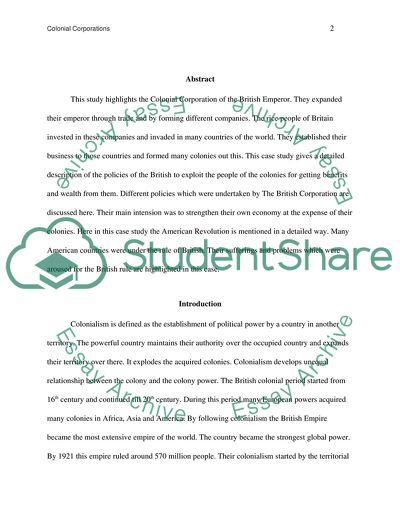Cite this document
(Colonial Corporation of the British Emperor Coursework, n.d.)
Colonial Corporation of the British Emperor Coursework. Retrieved from https://studentshare.org/history/1669875-colonial-corporations
Colonial Corporation of the British Emperor Coursework. Retrieved from https://studentshare.org/history/1669875-colonial-corporations
(Colonial Corporation of the British Emperor Coursework)
Colonial Corporation of the British Emperor Coursework. https://studentshare.org/history/1669875-colonial-corporations.
Colonial Corporation of the British Emperor Coursework. https://studentshare.org/history/1669875-colonial-corporations.
“Colonial Corporation of the British Emperor Coursework”, n.d. https://studentshare.org/history/1669875-colonial-corporations.


